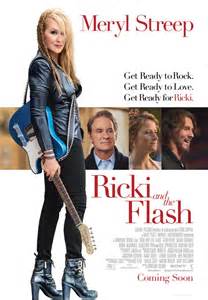
I’m not in love with you any more. Ex-litigator Royal Tenenbaum (Gene Hackman) leaves his three gifted children in their adolescent years and winds up in prison for fraud then returns to them after they have grown, falsely claiming he has a terminal illness when he’s thrown out of the hotel whose bills he cannot meet. He insinuates himself back into the family home where his archaeologist wife Etheline (Anjelica Huston) is dating accountant Henry Sherman (Danny Glover). Maths whiz and business genius Chas (Ben Stiller) is a widower who survived the plane crash that killed his wife the previous year and moves his sons Ari (Grant Rosenmeyer) and Uzi (Jonah Meyerson) back to the family home convinced their apartment is too dangerous. Margot (Gwyneth Paltrow) is a depressive playwright who hasn’t had a play produced in seven years. She is married to older neurologist Raleigh St Clair (Bill Murray) who doesn’t know any of her secrets. Formerly successful tennis player Richie (Luke Wilson) is on a neverending world cruise following a disaster on court. When he realises he’s in love with Margot, his adopted sister he contacts their neighbour Eli Cash (Owen Wilson) a lecturer and popular novelist who himself starts romancing Margot but dabbles in drugs. Royal’s arrival coincides with each family member enduring a crisis that seems insurmountable and living together again brings things to a head … This illness, this closeness to death… it’s had a profound affect on me. I feel like a different person, I really do. Flat symmetrical compositions with intricate production design and little camera movement. Ironic soundtracks. Blunt wit. At first glance Wes Anderson’s films might feel too contrived: highly stylised yet with an inimitable tone, destined forever for the shelf labelled Quirk. This is reminiscent of Salinger with its NYC setting, big brownstones, a dysfunctional family full of supposed eccentrics and is openly influenced by Le feu follet and The Magnificent Ambersons. At first glance it’s rambling and lacking construction. But at the centre of it is a performance of paternal dysfunction by Gene Hackman that’s genuinely great – but even that appears to deflect from the roles played by his children. They are a prism by which this deceitful man’s life is viewed. Hence the title. It was written for him against his wishes, says Anderson. There is an undertow of sadness reflected by the repetition of Vince Guaraldi’s theme from TV’s Charlie Brown series (and what an extraordinary soundtrack underpins this bittersweet comic drama, with everyone from The Clash to Elliott Smith busy expressing those sentiments the characters refuse). It’s a determinedly literary experience with Alec Baldwin’s voiceover ensuring that even if we miss the beautiful Chapter Titles (because this is based on a non-existent book…) we are always anchored in a sprawling narrative with its endearing cast of characters. In truth these are people who are unsuccessful adults, mired in grief, lost in unrequited love (inspiring two suicide attempts), depression and psychological problems, constantly beset by memories of childhood achievements they cannot reproduce in the real world. Faking it. It is a work of profound sadness and understanding. Just look at the pictures. Written by Anderson and Owen Wilson. I wish you’d’ve done this for me when I was a kid




